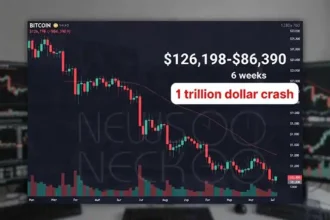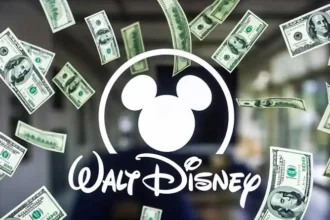A Bet on Hong Kong: What a $1.9 Billion Secret Reveals About China’s Tech Future
There is a quiet language spoken by corporations, one that is not heard in press releases or earnings calls, but is written in the hard numbers of real estate deals. It is a language of confidence, of fear, and of future plans. In Hong Kong, a city whose economic heartbeat has been irregular in recent years, two of China’s most powerful tech giants just spoke in a deafening shout.
This week, Alibaba Group and its financial affiliate, Ant Group, finalized the purchase of a prime office property in Hong Kong. The deal, valued at a staggering HK$15.2 billion (approximately $1.95 billion), is not just another corporate transaction. It is the city’s largest commercial property deal since 2021, a period marked by global uncertainty and a rocky recovery. For those who understand the language of money, the message is clear: after years of regulatory storms and internal retrenchment, China’s tech titans are planting a flag, signaling a new, more confident chapter.
The Anatomy of a Mega-Deal
The property at the center of this story is a 90% interest in The Center, a landmark skyscraper on Hong Kong’s iconic Victoria Harbour. The sellers were a consortium of Hong Kong’s most established property families and a state-owned enterprise. The transaction is a powerful symbol of a generational shift, where the new economy is taking root in the foundations laid by the old guard.
This is not Alibaba’s first major investment in Hong Kong’s physical landscape. The company is also the primary anchor tenant of another towering skyscraper, the nearly 50-story One King’s Road. This pattern of acquisition and occupancy reveals a long-term strategy. Alibaba and Ant are not merely buying office space; they are building a permanent home, a headquarters for their expanding ambitions across Southeast Asia and beyond.
The deal’s sheer size is a jolt of adrenaline for Hong Kong’s commercial real estate market, which has faced headwinds from rising interest rates and a slower-than-expected post-pandemic recovery. It sends a signal to other global investors that the city’s core assets remain deeply valuable, especially when a buyer of Alibaba’s stature is willing to make such a colossal bet.
You Might Like it: Rare Earth Minerals & Trade Tensions – The New Pakistan Fa…
A Story of Resilience and Recalibration
To understand the true weight of this purchase, one must look back at the recent history of China’s tech sector. Just a few years ago, the industry was in the throes of a severe regulatory crackdown. Ant Group’s blockbuster initial public offering was dramatically suspended in 2020, and Alibaba faced a record antitrust fine. The era of unchecked expansion appeared to be over.
This property deal suggests a recalibration, not a retreat. It indicates that after a period of introspection and compliance, these companies are emerging with a renewed sense of purpose. They are not shrinking back to mainland China; they are doubling down on Hong Kong’s unique role as a global financial hub and a gateway to international markets.
The move can be interpreted as a strategic consolidation. By bringing key operations under one roof or a series of owned roofs Alibaba and Ant can foster closer collaboration, streamline operations, and project an image of stability and permanence. It is a statement that they are here to stay, and they are building for the long term.
The Bigger Picture: A Vote of Confidence
Beyond the balance sheets, this transaction serves as a powerful political and economic barometer.
First, it is a massive vote of confidence in Hong Kong itself. The city has faced significant challenges, from political unrest to strict pandemic controls that isolated it from the world. For Alibaba and Ant, both deeply intertwined with the Chinese state, to make such a monumental investment is a clear endorsement of Hong Kong’s future under Beijing’s governance. It signals a belief that the city will retain its status as a critical global financial center.
Second, it reflects the evolving nature of Chinese corporate growth. The wild, “blitzscale” days may be tempered, but they are being replaced by a more mature, asset-heavy approach. Growth is now tied to tangible holdings and strategic footholds in key locations.
In the end, the story of this $1.9 billion deal is more than a story about a building. It is a narrative about resilience. It tells us that the Chinese tech sector is adapting, not disappearing. It shows that Hong Kong’s allure for Chinese capital remains potent. And it reminds us that in the world of global business, the most powerful statements are often made not with words, but with a simple, monumental act of purchase. The skyline of Hong Kong has a new anchor, and with it, a new story is beginning to be written.
Author: Yasir Khan
Date: 17 Oct, 2025
For More Updates, Visit Newsneck













